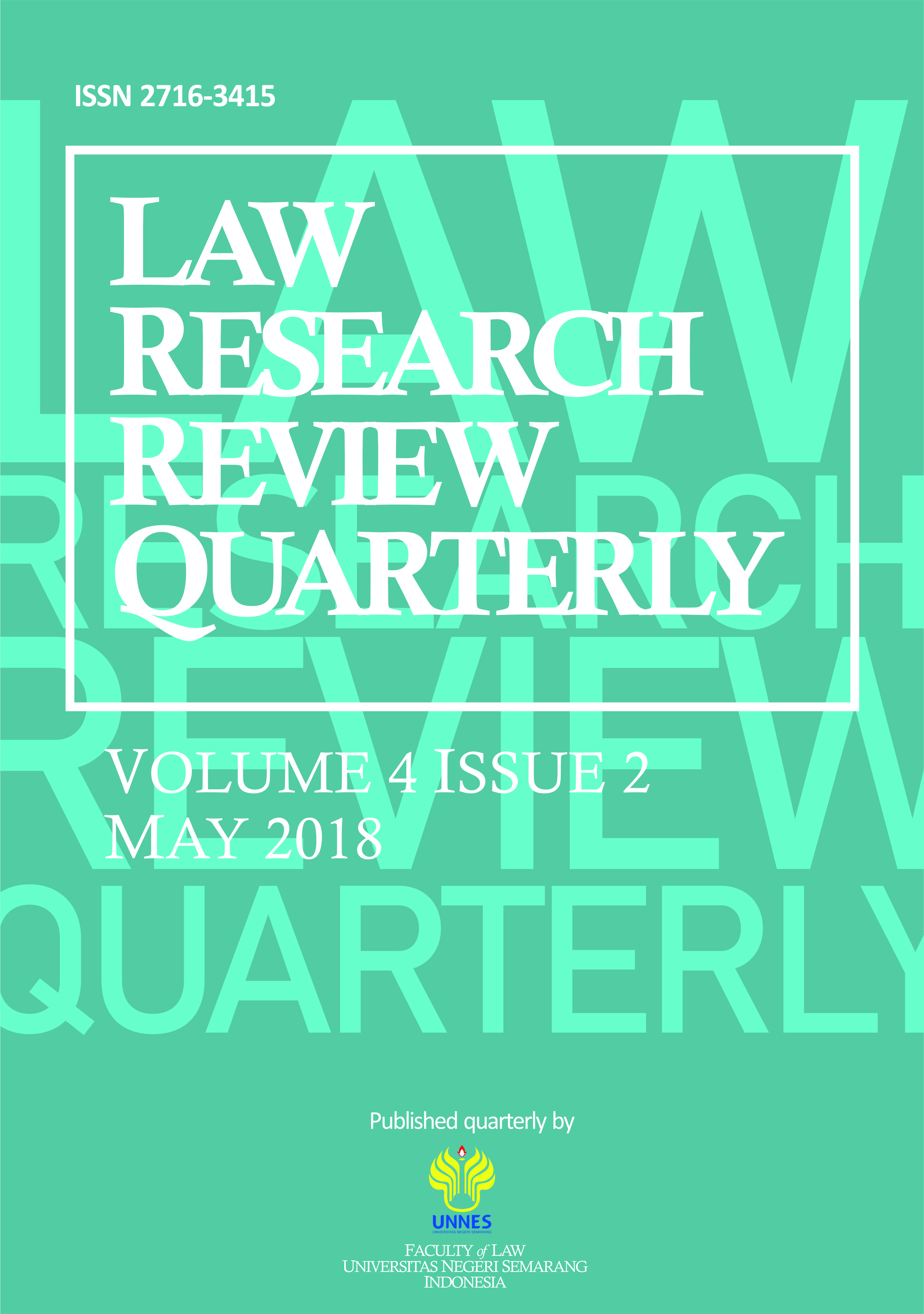Polemic of Gratification Attitude (Political Bride Price) in the Implicit Implementation of People's Feast in Indonesia
Main Article Content
Abstract
People's party is a manifestation of democracy which is considered the cleanest. In practice, the people's party turned out to form competition in fighting for political office. This competition has had an impact on the rise of fraud. This phenomenon is like a culture that has taken root in Indonesian society. From time to time the forms of cheating carried out increasingly diverse, ranging from the "dawn attack" to the Mahar Politics gave a new color in the implementation of the people's party. In fact, the regulation of the People's Party has been stated normatively in Law Number 7 of 2017 concerning General Elections. Ironic indeed, in the election alone there had been a lot of fraud let alone the implementation of the government. The negative specter that is caused, makes people uncomfortable seeing prospective leaders actually implies acts that tend to be immoral and justifies any means to smooth their interests. So that the question arises whether the leader is suitable to be elected or when he has been elected will actually cause harm to the people and even the State? This will be a puzzle both in the world of politics and in the minds of the people until the people are dashed in wanting a leader who is actually appropriate and clean. Various phenomena that surround the implementation of the election cause a loss of people's trust in the government, especially the leaders. In addition, losses from election crimes also cause consequences in terms of state finances.
Article Details
All writings published in this journal are personal views of the authors and do not represent the views of this journal and the author's affiliated institutions. Author(s) are retain the copyrights of the Article. However, before publishing, it is required to obtain written confirmation from Author(s) in order to ensure the originality (Author Statement of Originality). The statement is to be signed by at least one of the authors who have obtained the assent of the co-author(s) where applicable.This work licensed under a Creative Commons Attribution-ShareAlike 4.0 International (CC BY-SA 4.0)
References
Hamzah, Andi. (2014). Asas-Asas Hukum Pidana di Indonesia dan Perkembangannya. Jakarta: PT Softmedia.
Mas, Marwan. (2014). Pemberantasan Tindak Pidana Korupsi. Bogor: Ghalia Indonesia.
Rezki, Ade Fajar. (2017). “Tindak Pidana Korupsi Menurut Undang-Undang Nomor 31 Tahun 1999 jo. Undang-Undang Nomor 20 Tahun 2001 dan dalam Hukum Islamâ€, Universitas Sumatera Utara, hlm. 8.
Sugianto, Bambang. (2017). “Analisis Yuridis Penerapan dan Bentuk-Bentuk Tindak Pidana Pemilu Menurut Undang-Undang Nomor 7 Tahun 2017â€, Al’Adl, Vol IX Nomor 3, hlm. 298-299.
Surachmin, Suhandui Cahaya. (2007). Strategi & Teknik Korupsi. Jakarta: Sinar Grafika.
Wiyono, R. (2006). Pembahasan Undang-Undang Tindak Pidana Korupsi. Jakarta: Sinar Grafika.
Peraturan Perundang-Undangan
Republik Indonesia. Undang-Undang Nomor 31 Tahun 1999 tentang Pemberantasan Tindak Pidana Korupsi, Lembaran Negara Republik Indonesia Tahun 1999 Nomor 140.
Republik Indonesia. Undang-Undang Nomor 20 Tahun 2001 tentang Perubahan Atasa Undang-Undang Nomor 31 Tahun 1999 tentang Pemberantasan Tindak Pidana Korupsi, Lembaran Negara Republik Indonesia Tahun 2001 Nomor 134.
Republik Indonesia. Undang-Undang Nomor 7 Tahun 2017 tentang Pemilihan Umum, Lembaran Negara Tahun 2017 Nomor 182.
Republik Indonesia. Undang-Undang Nomor 8 Tahun 2015 tentang Perubahan Pertama Atas Undang-Undang Nomor 1 Tahun 2015 tentang Penetapan Peraturan Pemerintah Pengganti Undang-Undang Nomor 1 Tahun 2015 tentang Pemilihan Gubernut, Bupati, dan Walikota Menjadi Undang-Undang, Lembaran Negara Tahun 2015 Nomor 23.
Republik Indonesia. Undang-Undang Nomor 10 Tahun 2016 tentang Perubahan Kedua Atas Undang-Undang Nomor 1 Tahun 2015 Tentang Penetapan Peraturan Pemerintah Pengganti Undang-Undang Nomor 1 Tahun 2014 tentang Pemilihan Gubernur, Bupati, dan Walikota Menjadi Undang-Undang, Lembaran Negara Tahun 2016 Nomor 130.
